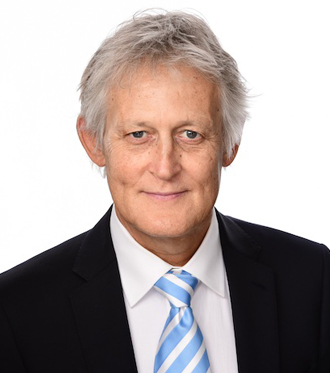
Professor Mark Gillies M.B.,B.S, PhD., F.R.A.N.Z.C.O.
Professor of Retinal Therapeutics, Save Sight Institute University of Sydney Medical retina, emerging treatments for macular degeneration and diabetic eye disease
Professor Mark Gillies is a world-renowned specialist in medical diseases of the retina with extensive experience in clinical and basic research in ophthalmology. He is currently the Director of the Macula Research Group, and research in general, at the Save Sight Institute, University of Sydney.
Mark is also actively involved in patient care, both through his private practice at Eye Associates and as Head of the Medical Retina Clinic of Sydney Eye Hospital, which he established in 1995, where he trains Australian and international retinal specialists.
Mark received his medical degree and PhD from the University of Melbourne and completed his residency in ophthalmology at the Prince of Wales Hospital, Sydney under Prof. Fred Hollows. He then undertook sabbaticals in retinal research at Havard and Moorfields Eye Hospital, London, where he collaborated with leading researchers in the field.
Mark’s research focuses on the causes and treatment of retinal diseases, including age-related macular degeneration, diabetic retinopathy and macular telangiectasia (MacTel). He has published round 350 articles which are cited around 2,000 a year by other medical scientists. His academic position is currently supported by an NHMRC investigator grant
One of Mark’s key contributions to the field has been to the development eye injections for macular disease. His Clinical Research Unit has conducted several major clinical trials of treatments for macular disease, including the very first on eye injections for any eye disease. His “Observational Studies” Unit has developed some of the world’s most advanced internet-based software to track the outcomes of treatment of macular disease in “real-world” practice, the Fight Retinal Blindness! Project.
He was also a founder of the international MacTel Project and was the Chief Investigator of the international trials that led to the registration of its first treatment, the Encelto implant.
Mark has also made significant contributions to the understanding of the cell biology of retinal diseases through the work of his laboratory that currently uses AI-driven “multi-omic” approaches to study retinal metabolism with a particular interest to how the macula is different to the rest of the retina and why it is so prone to degeneration. He has supervised numerous PhD students and postdoctoral fellows.







